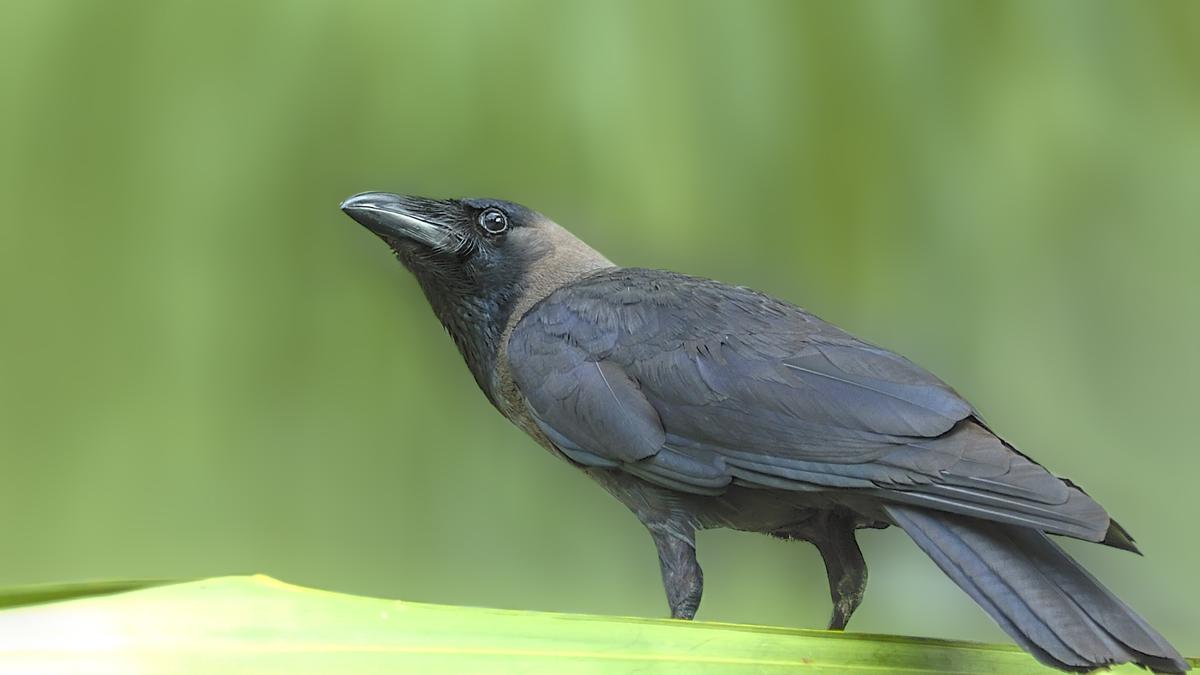Crows can sometimes surprise humans with their behaviour.
| Photo Credit: Getty Images/iStockphoto
This is the story of a friend who has never ceased to be astonished at the memory of the way a murder of crows behaved in her backyard. She has recounted it more than once, exclaiming that the noun “birdbrain” should have no place in our vocabulary.
Here is what happened. A fallen crow had attracted a sizeable number of its tribe which were talking loudly to one another in “Crow”, unintelligible to lesser beings such as humans. All of a sudden, one bird swooped down, looked closely at the crow on the ground and flew off. There followed an amazing procession. One by one, and in silence, every one of its fellows flew down, and enacted the exact same steps: a few seconds by the carcass before flying away. What were the birds doing? Does it not seem like the funeral rites we observe when we pay our respects to the dead? There was something astounding and uplifting in the behaviour of a species driven by instinct alone.
Stories abound about dogs that refuse to move from an owner who slipped into her last sleep or wait for a master to return on a train which will never bring him back; there is video evidence of elephants gathering to mourn their dead; an orca is known to roam the seas disconsolately for weeks when its mother dies. But crows? Paying their last respects with discipline and — for once — silently.
The arrow of time which links past, present and future seems to inform all beings and like the dead bird, the history of the whole world surely leads without fail into the earth. But the cycle of fall and renewal is not only the great reality of Nature but also the story of human hope even when surrounded by threats created by ourselves and beyond our control.
What might we learn from birds? Whitman said, “I think I could turn and live with animals…”
minioup@gmail.com
Published – February 23, 2025 03:48 am IST
